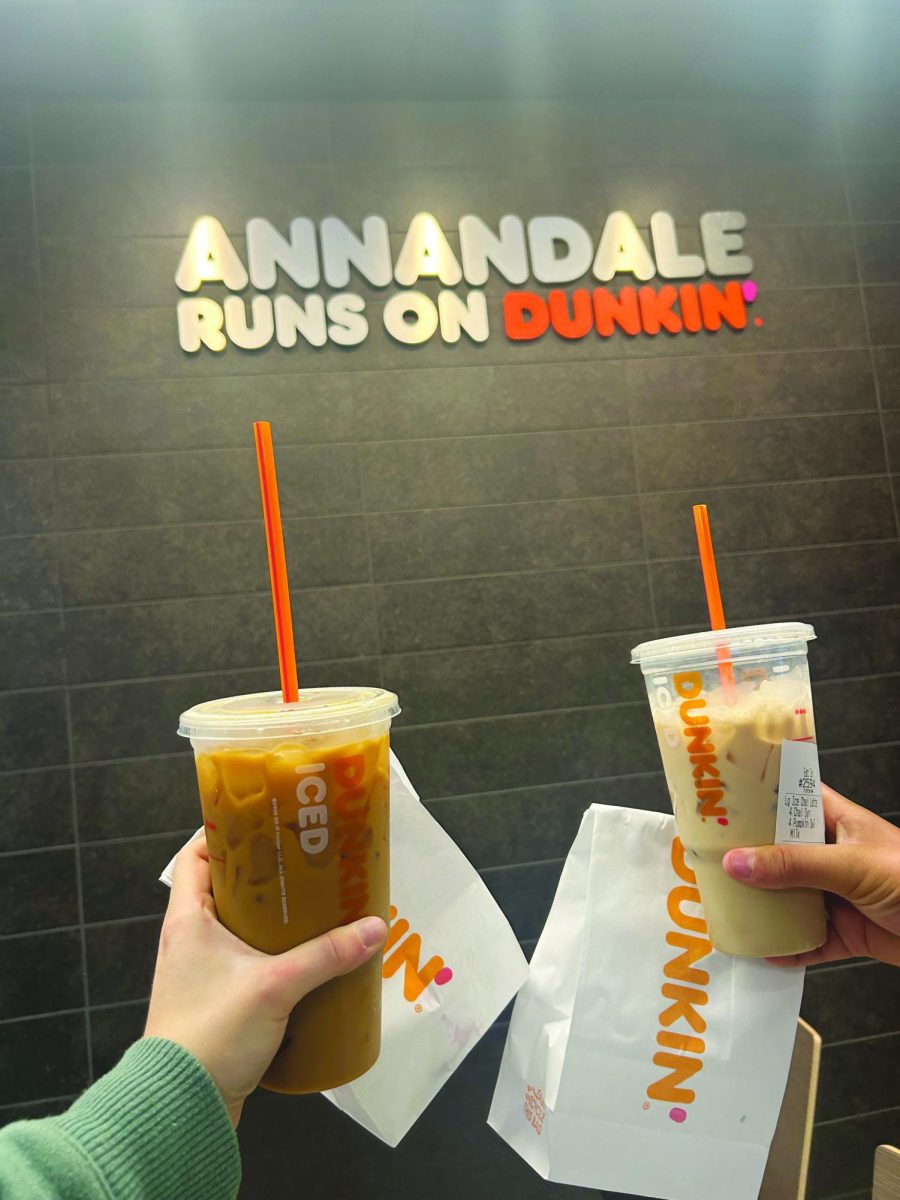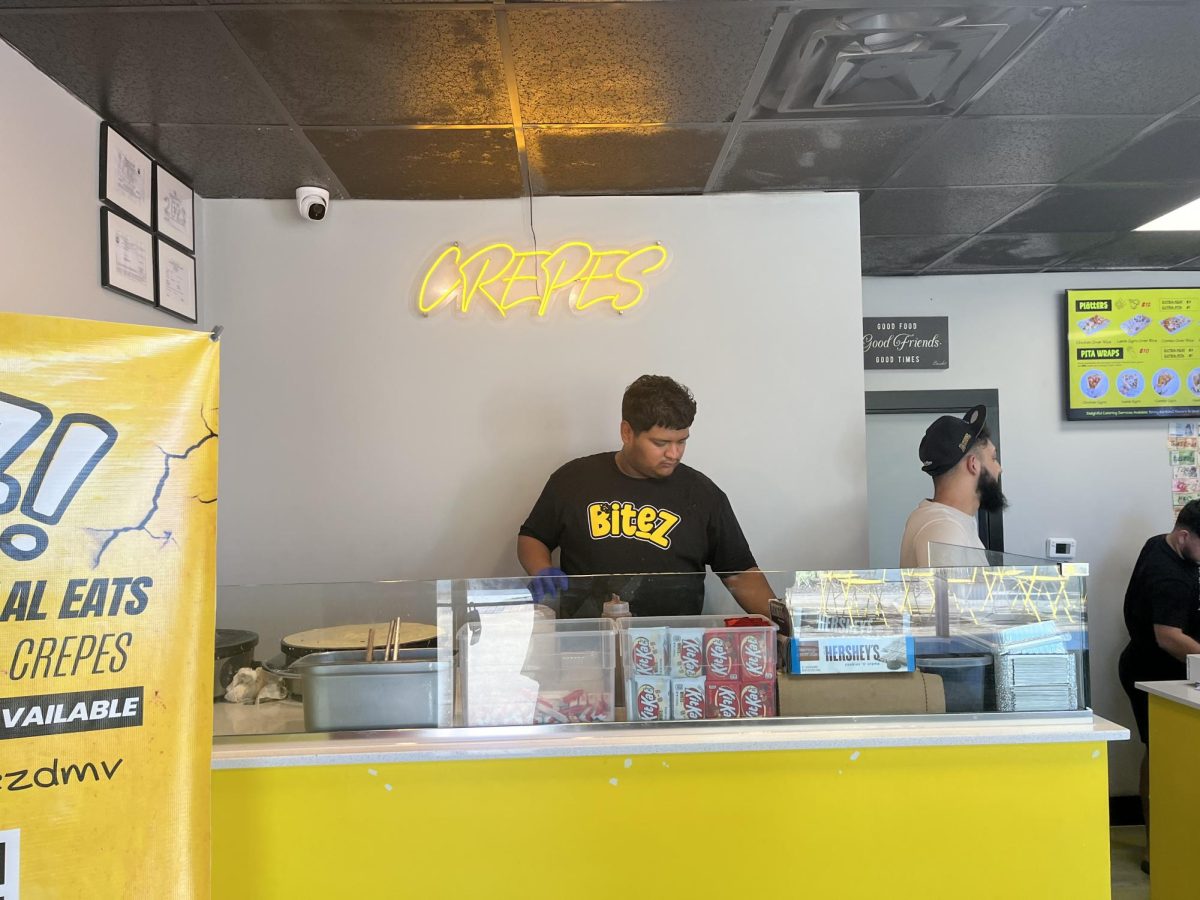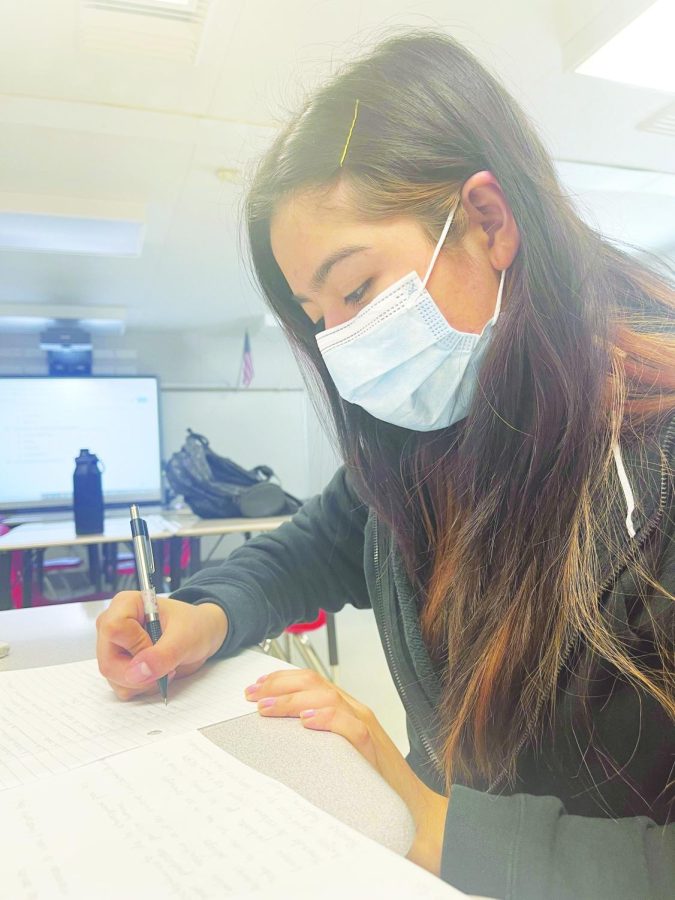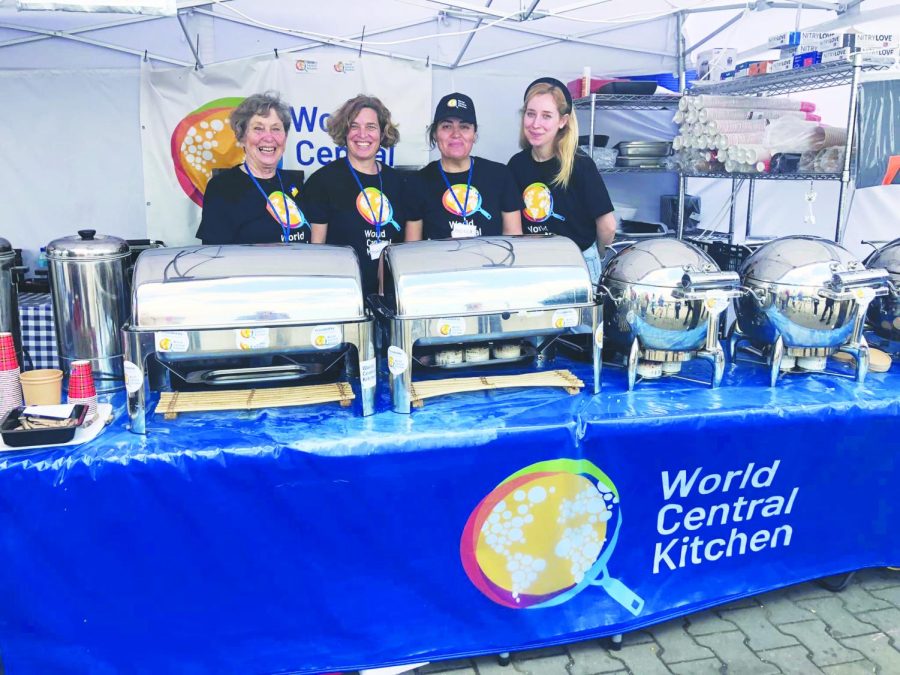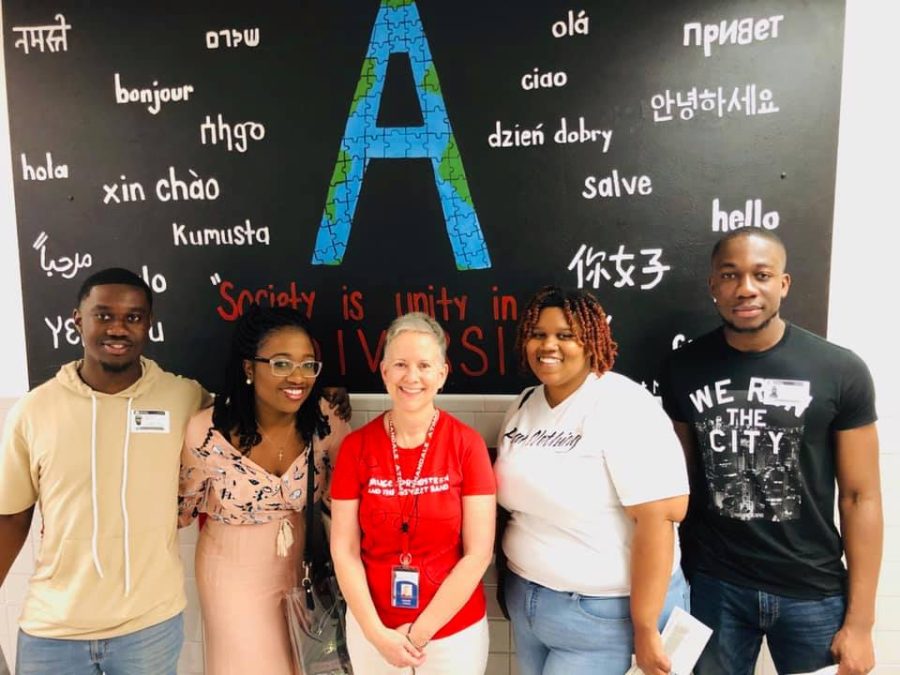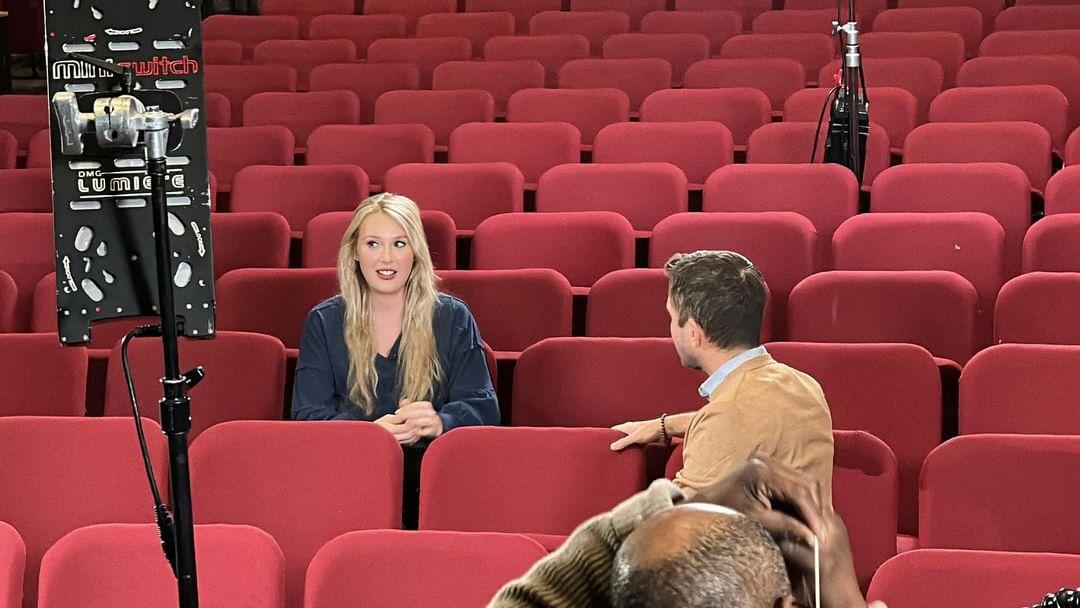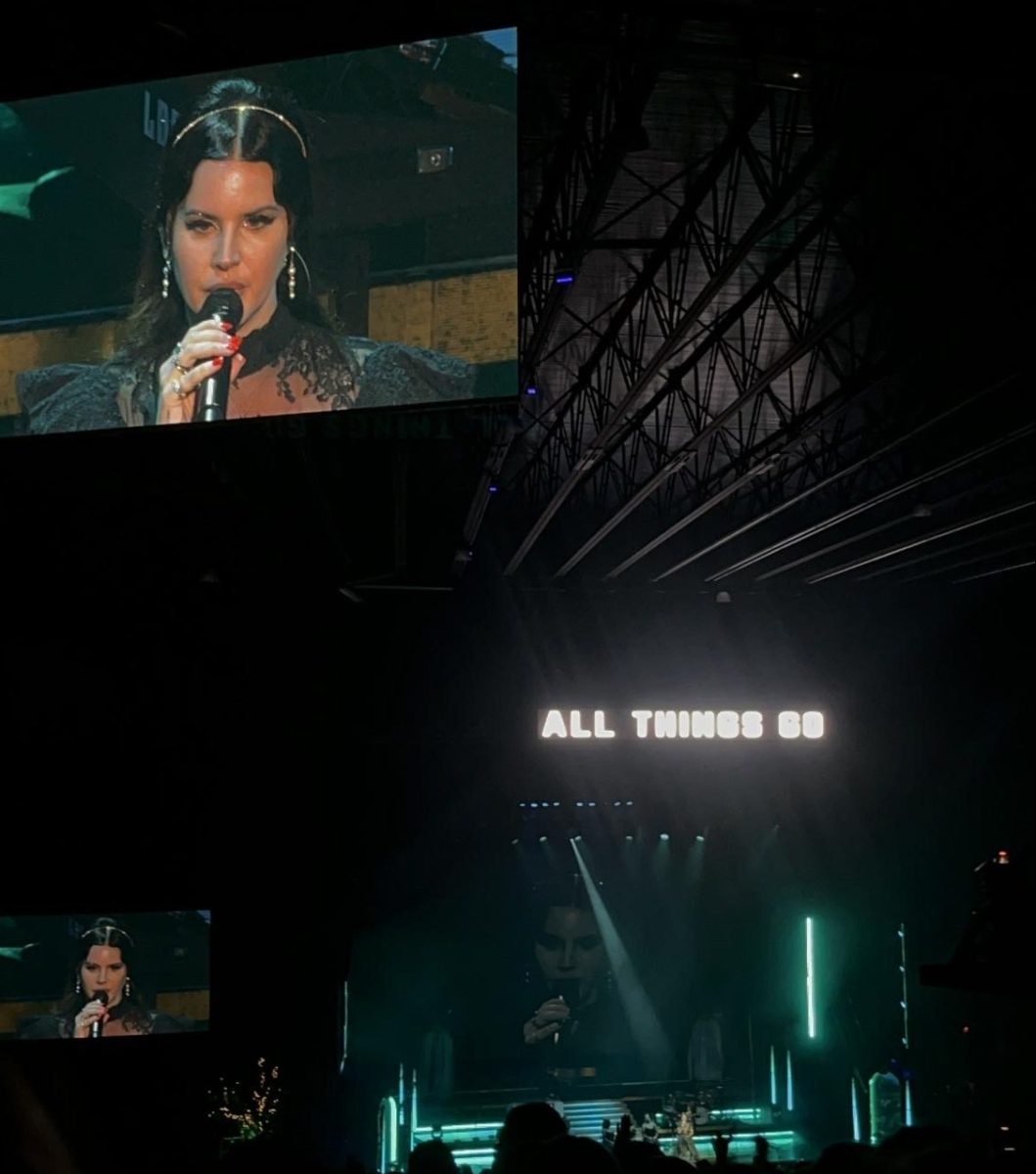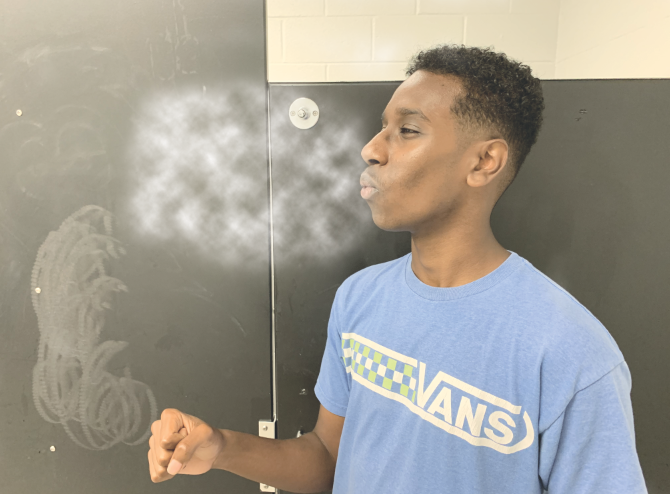Hundreds of students, teachers, judges and parents attended the annual AHS Science Fair on Feb. 2. The event took place in the cafeteria and ran from about 2 p.m. to 4 p.m. The winners will be announced today in the individual science classes.
Science Fair is a yearly event that requires all students who take honors sciences to design, conduct and present their own science experiments for any of the different science courses offered at AHS.
Almost as diverse as the projects themselves were the experiences each group of students had while preparing for the fair. Some students spent weeks on their experiment. Freshman Diva Chowdhury, who tested the vitamin C levels of fruits after different methods of cooking, said she and her group “started a week after winter break.” Other projects did not require nearly as much time.
“I did it in like two days,” freshman Ahmed Elnour said.
Generally, students found it easier to conduct experiments on subjects they actually enjoyed learning about. Senior Tatiana Niang has participated in the Science Fair this year as well as last year. While she conducted an experiment based on environmental science last year, this year her project, called “Effect of Mass on a Pass” was focused on physics.
“The subject made a big difference,” Niang said. “This is a topic I’m really familiar with, and it’s applicable to everyday life and sports, so I could explain it better.” She even included a video of the process to show the judges for clarification.
Many students, such as Niang and Chowdhury, chose to work with partners rather than go through the experience alone. “Its definitely advantageous to have a partner,” Niang said. “You get different perspectives and clarification.”
Usually, the students required to participate in the fair are in non-IB science courses, as the IB students participated in the Group 4 projects in November. The IB students who do participate in Science Fair usually do so of their own accord. Conversely, some students at AHS were “just doing it for the grade,” Chowdhury said.
While the Science Fair usually runs smoothly, according to IB Chemistry teacher Isaac Boakye, some changes have been made this year.
“In previous years we had IB Environmental Science students join in the Science Fair,” he said. “This year we moved these students to join the IB Group 4, so the number went down.”
With less students, it was more time-manageable and easier to organize. Furthermore, “last year judges would simply walk around,” Niang said. “But this year they assigned judges for you so it was better to know they were coming instead of just waiting and waiting.”
Most students generally received positive feedback from their judges. “The judges really liked our idea and thought it was understandable,” Niang said.
One of the judges, Bruce Fenchel, who is the father of biology teacher Steve Fenchel, said “I think what is refreshing is the enthusiasm of the kids. Whether they’ve done an excellent job or an average job, they’ve all walked away with more knowledge than they started with.”
“The beauty about the Science Fair is it helps you to see how students grow based on the projects they’ve done,” Boakye said. “It shows growth in terms of science.”







